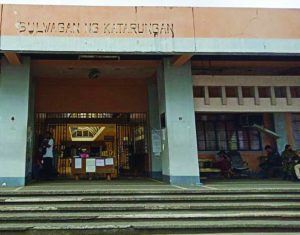
TACLOBAN CITY – The Parole and Probation Administration (PPA) in the region has reported a two percent revocation rate among persons deprived of liberty (PDLs) released either through parole or probation.
While this revocation rate may seem minimal, it remains a significant concern for the agency, which aims to support these PDLs in their reintegration into society, PPA Regional Director Ma. Beverly Ampo stated on Tuesday, August 27 during the ‘Kapihan sa Bagong Pilipinas’ of the Philippine Information Agency (PIA).
The two percent revocation rate represents approximately 5,000 PDLs across the region as of last year and of which, 90 percent of these individuals were charged with offenses related to illegal drugs.
“The revocation rate may be minimal at just around two percent, but it still alarms us because one of our primary goals is to rehabilitate these individuals and help them lead normal lives,” Ampo said.
Revocations occur when PDLs commit new crimes while on parole or probation, according to Ampo.
“We are doing our best to help them reintegrate into society and become productive members. However, the triggers for criminal behavior still exist outside, making it challenging for them to avoid reoffending,” she added.
Once their parole or probation is revoked, the affected PDLs are rearrested, detained, and required to serve the remaining portion of their original sentence in prison, among other consequences.
Parole is a conditional release granted to inmates before they complete their entire sentence, typically due to good conduct while in jail. Probation, on the other hand, is a court-ordered period of supervision in the community offered as an alternative to imprisonment.
PDLs granted parole or probation must regularly report to PPA offices, avoid criminal activity, and attend rehabilitation sessions, among other conditions.
Ampo also expressed concern over the challenges faced by probationary and parole officers in the region.
“We only have 36 parole and probation officers in the region, and they receive a minimal budget of just P350 per client visit,” she said. “Some of them even have to cross rivers, hike mountains, or use their own money to reach and assist our clients.”
Ampo hopes that Congress will approve their modernization program, which would not only provide better equipment and office facilities but also increase the budget for their personnel.
(JOEY A. GABIETA)



